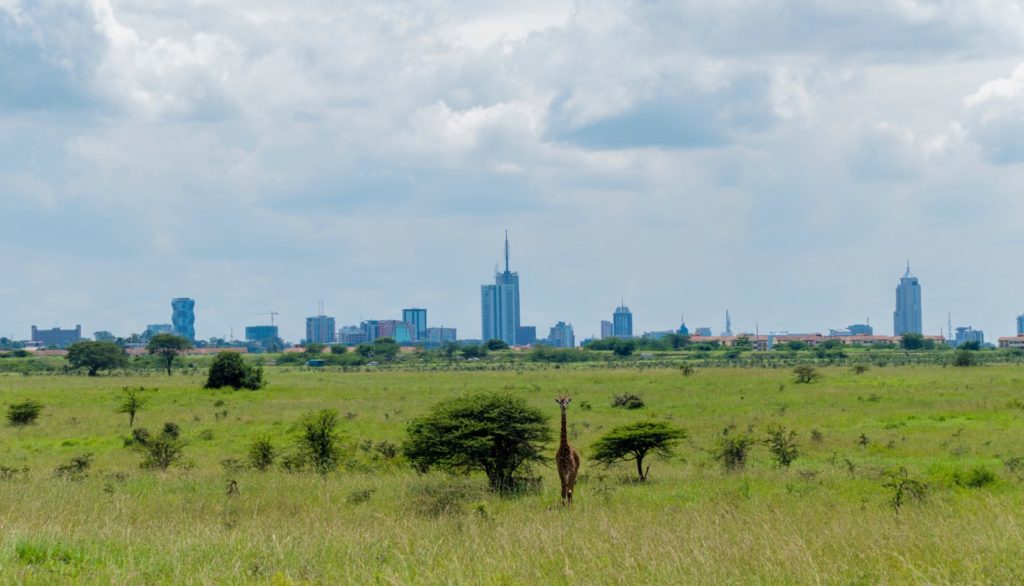Nearly a year and a half ago, when the first cases of Covid-19 began to appear, the main Monday morning headline in a Nairobi newspaper, referring to a crowded open-air gathering of Pentecostals the day before, exclaimed in bold letters "Agents of Death." Since then and until today, churches and mosques have been either completely closed or open to one-third capacity. Services have been broadcast over the Internet. Last year schools were closed for many months. This meant that students in Catholic schools were deprived of sacraments and religious classes. Instead, they were more exposed to social networking and the like, some of which is quite damaging - and, yes, social networking is as widespread in Africa's urban centers as anywhere else in the world.
When things return to the way they were before the pandemic, if they return, will young people return to the churches with the same interest and fervor as before?
Unlike Europe or America, where the Church has always been open to the faithful, in Africa it has been a case of open-close-open-open-close since apostolic times, but during those 2,000 years the Church has always kept the light of faith burning somewhere in the vast continent.
As St. John Paul II reminded us in Ecclesia in Africa (30-37), the beginnings go back to St. Mark the Evangelist, and despite the pressure and advance of Islam, they left flourishing communities in Egypt and Ethiopia until the present day, and in Nubia (present-day Sudan) until the 17th century.
The second phase took place in the late 15th, 16th and 17th centuries with Portuguese voyages of exploration to the west coast, and the establishment of a Christian kingdom in what is now the Democratic Republic of Congo - a fascinating story in itself - but one that came to an end in the 18th century. And on the east coast, where Francis Xavier celebrated Mass on his way to India, and the 300 African and Portuguese martyrs of Mombasa whose cause is now being investigated. Another touching story. By that time, the first Dutch and French Huguenots had arrived at the Cape to settle.
The last chapter took place in the 19th and early 20th century, the huge missionary surge into the interior of the continent, the momentum of which is still being felt. The flow of missionaries has almost dried up and the Church is not only in the hands of the local clergy, but Africa is exporting clergy to fill vacant parishes in heavily secularized Europe.
The question now is this: will the Church be able to withstand the cold winds of secularization blowing across Africa, initially in the large urban centers and very quickly everywhere else?
The African population is young and curious about the outside world, especially new gadgets and technology, which puts them on the same level as young people anywhere in the world and, they hope, if possible, even ahead of them. Social media content is beyond the reach and control of parents, even the best of them, and can dilute the values and wisdom that parents have imparted; add to this peer pressure.
Pope John Paul II spoke of this almost 30 years ago when he warned against "materialistic seductions of all kinds, a certain secularization and an intellectual agitation provoked by an avalanche of insufficiently critical ideas spread by the media."
And Pope Francis, meeting with the youth of Uganda in Kampala on November 28, 2015, in a similar vein, pricked their consciences by warning them against the fear of going against the tide, of giving in to gratification and consumption alien to the deepest values of African culture. What would the Ugandan martyrs say about the misuse of our modern media, where young people are exposed to distorted images and visions of sexuality that degrade human dignity, causing sadness and emptiness?
However, Pope John Paul II had great faith in Africa. In Ecclesia in Africa, n. 42, he praised Africans for their "profound religious sense, a sense of the sacred..." (which African philosophers and theologians such as the Protestant John Mbiti and the late Fr. Charles Nyamiti had analyzed and acclaimed). The Pope continued: "...of the existence of God the Creator and of a spiritual world. The reality of sin in its individual and social forms is very present in the consciousness of these peoples, as well as the need for rites of purification and expiation."
Until Covid-19 changed things, young Africans traveled more than ever outside of Africa and were exposed to and familiar with other "values" and "lifestyles" or at least read about them on social media. What about them? Have they been irretrievably affected? Or will common sense, parental and extended family pressure and life experience let them steer in the right direction once they stop spinning?
Perhaps a little anecdote can give us an indication. The founder and president of the Kenyan Society of Atheists left everything in the hands of a successor and joined a group of evangelical Christians, realizing that this was where he had belonged all along!








